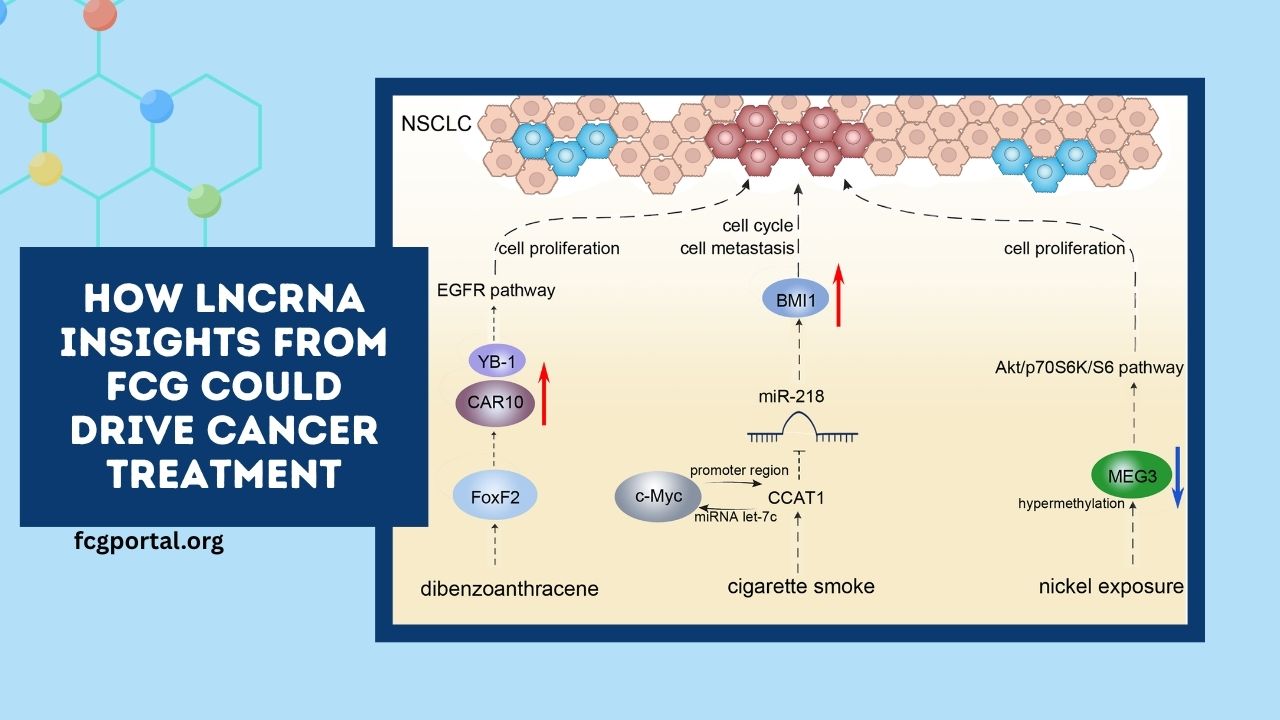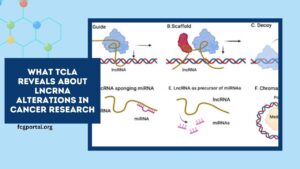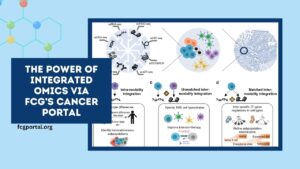Modern cancer treatment is rapidly evolving—thanks in part to discoveries in the long non‑coding RNA (lncRNA) domain.
The Functional Cancer Genome (FCG) Portal enables researchers to examine lncRNA transcriptional, genomic, and epigenetic alterations across cancers, pinpointing potential therapeutic targets across multiple dimensions.
Why FCG‑Derived lncRNA Insights Matter
- The FCG Portal aggregates vast TCGA and CGHub datasets, making it possible to explore how specific lncRNAs change across cancer types.
- This powerful integration of multi-omics data aids in identifying drug targets, especially those linked to histone-modification enzymes, which are frequently altered in cancers.
Latest Advances in lncRNA-Targeted Cancer Therapies
| Area | Insight |
|---|---|
| ncRNA Therapeutics | lncRNA‑based therapies (e.g., antisense oligonucleotides) are progressing toward clinical trials. |
| Drug Resistance | lncRNAs drive chemotherapy resistance via modulating DNA repair, apoptosis, and EMT mechanisms. |
| Precision Delivery | Advances in sequence optimization and nanoformulation have improved therapeutic delivery and reduced immunogenicity. |
| Epigenetic Intervention | Targeting lncRNAs that influence the epigenome offers personalized treatment opportunities. |
| Immuno-modulation | Single-cell and immunotherapy research shows lncRNAs regulate immune checkpoints (e.g., PD‑L1), aiding precision therapies. |
| PTM Influence | lncRNAs can regulate post-translational modifications (PTMs) of oncogenes and tumor suppressors, affecting treatment response. |
Transforming lncRNA Insights Into Clinical Tools
- Biomarker Discovery
lncRNAs involved in drug resistance can be harnessed as diagnostic or prognostic biomarkers, enabling early detection and personalized treatment plans. - Therapeutic Targeting
FCG-assisted identification of lncRNAs with high genomic alteration frequency (like histone‑modifier‑associated lncRNAs) guides development of targeted therapies. - Enhancing Treatment Precision
Tailoring lncRNA therapies via nanoformulations and sequence optimizations improves specificity and lowers side effects. - Immunotherapy Synergy
Modulating lncRNAs that control immune checkpoints may enhance immunotherapy response, bridging epigenetics and immune modulation. - Overcoming Resistance
By targeting lncRNAs that modulate DNA repair, EMT, or apoptosis, new treatment regimens can tackle chemotherapy and radiotherapy resistance effectively.
The FCG Portal empowers researchers by offering deep, multi-layered insights into lncRNA alterations across cancers.
When combined with breakthroughs in lncRNA-based therapeutics, epigenetic targeting, and immunotherapeutic synergies, these insights promise a future of truly personalized cancer treatment—from combating drug resistance to redefining patient outcomes.
FAQs
What types of lncRNA data does the FCG Portal provide?
It delivers multi-dimensional lncRNA data—transcriptional, genomic, and epigenetic—gleaned from TCGA and CGHub datasets.
How are lncRNAs being leveraged in new cancer treatments?
They are targeted via antisense therapeutics, CRISPR, nano-delivery, and as regulators in immune-checkpoint pathways and therapy resistance.
Why are lncRNAs central to overcoming drug resistance?
lncRNAs influence mechanisms like DNA repair, EMT, and apoptosis, making them strategic targets to reverse resistance in treatment-resistant cancers.


